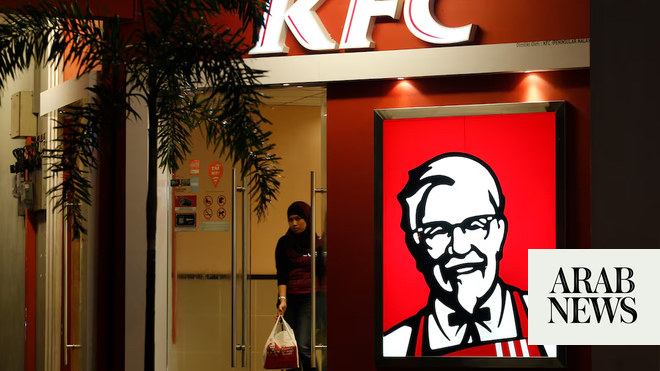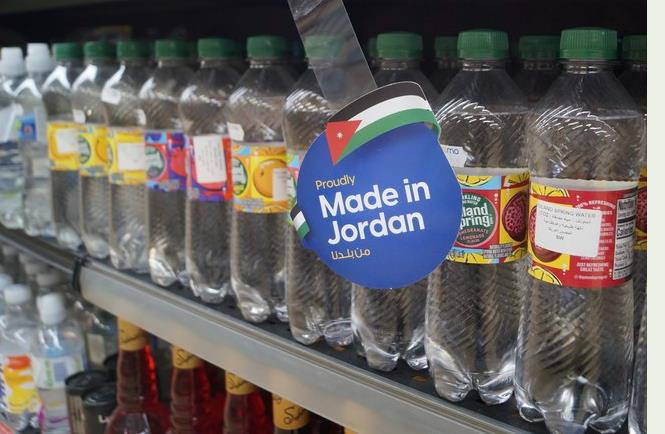
KFC is not on Malaysian boycott movement’s list, but consumers see it as linked to Israel
Franchise operator cites ‘challenging economic conditions’ as reason for closures
KUALA LUMPUR: Scores of KFC outlets have closed in Malaysia amid calls to boycott the chain and other brands accused of links with Israel.
Since the outbreak of Israel’s deadly attacks on Gaza in October, many Malaysian citizens have backed a growing refusal to buy products from the Western companies seen as having relations with Tel Aviv.
KFC is among a number of brands that have been reeling from falling revenues, as those who join the boycott movement see them facilitating the Israeli strikes, which have already killed nearly 35,000 people in the Palestinian territory, mostly women and children.
The US-origin fast-food chain has closed more than 100 outlets across Malaysia since October, according to local media estimates.
KFC Malaysia operator QSR Brands Holdings admitted in a statement earlier this week to a temporary closure to “manage increasing business costs,” which it attributed to “challenging economic conditions.”
QSR Brands did not say how many outlets had been closed or if the action was due to a loss in sales caused by the boycott.
The company, which runs over 600 KFC restaurants across the Southeast Asian nation, said staff from affected outlets were given the opportunity to “relocate to busier” stores.
Major companies with international brand names in Malaysia have in recent months reported losses due to the boycott, even if they were not original targets of the action.
In February, the parent company of the US-origin coffee chain Starbucks in Malaysia said the snub by customers led to a near 40 percent drop in revenue. The news followed an earlier claimed loss of profits and job cuts by the country’s McDonald’s franchise.
The anti-Israel boycott in Malaysia has been spearheaded by the local chapter of the global Boycott, Divestment, Sanctions movement. Besides McDonald’s, other popular brands it listed included Burger King, Puma, Airbnb and Pizza Hut.
BDS Malaysia Chairman Mohd. Nazari Ismail told Arab News that KFC was not on the group’s boycott list, but it might be targeted because of its US origins.
“Many Malaysians perceive any American fast-food operator to be related to Israel including KFC,” he said.
“KFC is not on our list because BDS’s strategy is to focus on a limited number of companies to maximize the impact of our efforts. But it is on the list of other organizations that call for boycott of all companies that are related to Israel.”
Many Malaysians who reacted on social media to the news of the outlets closing commented “alhamdulillah,” or “thank God,” with some singling out KFC’s parent company in the US, the American fast-food multinational Yum Brands.
“KFC’s parent company, Yum Brands, invests in Israeli startups,” said X.com user meraungkesepian.
Others targeted the chain’s quality, saying it had fallen off the mark, leading to their shunning of the brand.
“Many have boycotted KFC not 100 percent because of Israel. But because KFC doesn’t have any quality,” said X.com user tonnychua9988 in Malay.
The boycott of KFC was expected, according to Syaza Farhana Mohamad Shukri, associate professor of political science at the International Islamic University Malaysia.
“I think the KFC boycott was inevitable because what is more American than Kentucky Fried Chicken?” she said.
“It is all based on sentiment ... companies that appear to be American-based get the brunt of the people’s anger.”
More than 60 percent of Malaysia’s 33 million people are Muslim, and the country has been fiercely supportive of the Palestinian struggle for decades.
It has no formal relations with Israel and bars Israeli nationals from entering its territory.
In December, Malaysia also barred Israeli and Israel-bound ships from docking at its ports.











